Morocco: Countdown to World Cup 2030! A Rising Star in the MENA Region
Morocco is on the cusp of a transformative journey, positioning itself as one of the premier investment destinations in the Middle East and North Africa (MENA) region. As a co-host of the 2030 FIFA World Cup alongside Spain and Portugal, Morocco is set to attract global attention and billions of dollars in investments, making the event a game-changer for the country’s economy and infrastructure.
Key Infrastructure Investments for the World Cup
Leading up to the 2030 World Cup, Morocco is expected to channel at least $5 billion into critical infrastructure projects. Among these is the Grand Stade Hassan II, a monumental stadium near Casablanca with a seating capacity of 115,000, poised to become one of the world’s largest football venues.
However, the investments extend far beyond sports infrastructure. Morocco’s preparation for the World Cup encompasses advancements in transportation, hospitality, and tourism, all aimed at enhancing the country’s global profile.
Morocco’s co-hosts, Spain and Portugal, are also undertaking massive infrastructure projects, such as Spain’s $1.9 billion renovation of Santiago Bernabéu Stadium and the $1 billion overhaul of Barcelona’s Camp Nou. These projects underline the scale of investment required for hosting international events and the economic opportunities they unlock.
Morocco’s Economic Stability and Green Vision
Morocco’s World Cup preparation reflects a broader commitment to sustainable and economic development. The Noor Solar Power Station, one of the largest solar plants globally, highlights the nation’s dedication to green energy and aligns with the Plan Maroc Vert (Green Plan). These initiatives have positioned Morocco as a leader in sustainable infrastructure within the MENA region.
In global rankings, Morocco has emerged as a stable and attractive destination for investment. US News & World Report places Morocco as the 39th best country globally and second in Africa for quality of life. Additionally, in the Transparency International Corruption Perception Index, Morocco outperforms more than 80 countries, including Algeria, Brazil, and Indonesia.
A Strategic Location and Global Collaboration
Morocco’s strategic location—bridging Africa and Europe—enhances its appeal for investors and trade partners. The late King Hassan II aptly described Morocco as “a tree whose roots are in Africa and which breathes through its leaves in Europe,” emphasizing its role as a gateway between continents.
The partnership with Spain and Portugal for the World Cup further strengthens Morocco’s position, granting access to world-class expertise and ensuring infrastructure projects meet international standards. This collaboration is a testament to Morocco’s ability to forge alliances that drive economic growth and development.
The Economic Impact of the World Cup
The 2030 FIFA World Cup is more than just a sporting event for Morocco—it is a catalyst for long-term economic progress. With tourism already rebounding post-COVID, the World Cup will amplify Morocco’s global visibility, further boosting the hospitality and tourism sectors.
The ripple effects will extend to key areas such as real estate, transportation, and renewable energy, attracting sustained investment and enhancing Morocco’s economic landscape.
Why Morocco Is an Ideal Investment Destination
Morocco’s unique blend of economic stability, sustainable initiatives, and strategic location positions it as a top choice for investors in the MENA region. The upcoming World Cup serves as a springboard for growth, creating opportunities across sectors such as infrastructure, commercial real estate, and renewable energy.
As billions of dollars flow into the country, Morocco’s development strategy aligns with global trends, offering a favorable environment for investors seeking long-term returns. By leveraging its resources and partnerships, Morocco is set to solidify its place as a leading investment hub and a shining star in the MENA region.
